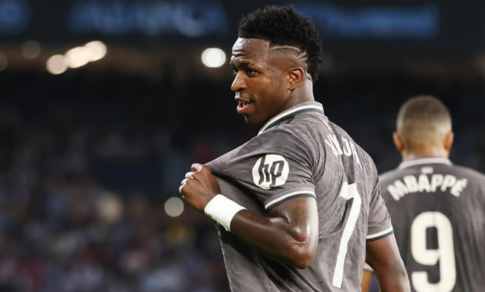Vinicius Junior played a pivotal role in Real Madrid's journey to win the Spanish Championship and Champions League, while Rodri was instrumental in Manchester City's Premier League title and Spain's Euro triumph. A notable factor in the Ballon d'Or selection this year was UEFA's added emphasis on fair behavior and respect among players. Vinicius and his Real Madrid teammates, including Kylian Mbappe, skipped the awards ceremony, reinforcing the idea that Rodri was the rightful winner. Real Madrid has long earned respect in football, but this recent display highlighted a lack of sportsmanship.
Real Madrid is known for its resilience, often turning games around even in challenging situations. However, there's a fine line between a strong competitive spirit and an inability to lose gracefully. Real's reaction to recent events, including Coach Ancelotti's criticism of Barcelona's celebrations in their 4-0 Clasico defeat, pointed to a pattern of unsportsmanlike conduct. Rodri's victory showcased qualities beyond goal-scoring: leadership, teamwork, and a silent contribution that doesn’t show in statistics.
Watch NPFL Matches LIVE: https://www.africasport.net/livetv/nigeria
Several factors favored Rodri over Vinicius for the Ballon d'Or. Firstly, Spain's competitive edge in football contrasts with Brazil’s more relaxed approach. Secondly, Rodri's advocacy against excessive game schedules highlighted his concern for players' welfare. Thirdly, his role on the field is less glamorous yet crucial. Rodri's win was significant for midfielders who work behind the scenes, a rare recognition since similar players, like Modric, rarely win the award.
Real Madrid’s decision to boycott the Ballon d'Or ceremony came across as unprofessional, leading to an awkward moment as Rodri received his award before an audience with empty seats. Spanish football, after all, is globally dominant, with both male and female awardees from Spain this year. While only Dani Carvajal congratulated Rodri, Coach Ancelotti, who won Coach of the Year, surprisingly did not. This reaction highlighted the sense of entitlement often associated with Real Madrid.
Real’s decision to cancel its private flight to the ceremony raised eyebrows, especially since no one knew the winner until the announcement. Rodri himself only learned of his victory at the ceremony, underscoring the secrecy of the results. Yet Real Madrid’s apparent refusal to accept Rodri’s victory for Vinicius revealed a lack of sportsmanship in handling the Ballon d'Or outcome.
Rodri’s win was viewed as a romantic choice, much like Modric’s in the past, though Rodri is more defensively positioned, similar to Fabio Cannavaro, who won the Ballon d'Or after the 2006 World Cup. Many fans saw this decision as valuing substance over style, with Rodri's game contrasting with Vinicius' flashier, forward-driven approach. This emphasis on selflessness resonated with voters who often overlook these contributions.
Madrid's media framed Vinicius' absence as a stand against perceived discrimination toward Real, yet the boycott underscored the club's self-centered outlook. The club canceled broadcasts and ignored the awards on its website. This stubborn stance displayed Real's unwillingness to acknowledge global recognition outside its own realm, as if the football world must comply with its terms. This reaction highlighted that football's narrative doesn’t solely revolve around Real anymore.








ADD A COMMENT :